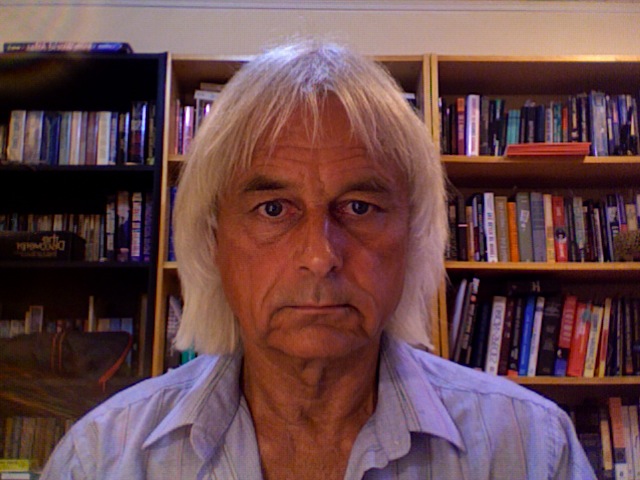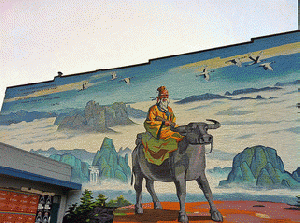Shepherds, Wolves, and the Tao of Good Government
In 2012 China's new leaders were reading Alexis de Tocqueville's 1856 book, The Old Regime and the Revolution, which surveys the extreme economic inequality and social injustice of pre-Revolutionary France. The book offers an object lesson in how to lose your head by accidentally inciting popular overthrow of a regime that fails to exercise responsible leadership. I explored possible applications of de Tocqueville's observations to present day China and America in an article, de Tocqueville in China,
http://econintersect.com/b2evolution/blog2.php/2012/11/27/de-tocqueville-in-china
Like the opening of a floodgate, Deng Xiaoping's 1987 dictum, "To be rich is glorious", unleashed the Chinese people's entrepreneurial zeal and acquisitive ambitions. The resultant tsunami of economic development lifted 100s of millions of Chinese from precarious survival as peasant farmers to the relative economic wealth and social novelty of urbanized working class wage laborers. Riding the crest of the tsunami was a new class of rich Chinese capitalists, towing the cohort of China's freshly forged middle class in their gloriously impressive wake.[tag]
Capitalists apply concentrated labor to resource extraction, refining, factory production of semi-finished goods, and factory assembly of finished goods ready for sale. English capitalism got its start with home-based cottage industry carding and spinning of wool thread, woven into wool cloth on mechanical looms in town or city factories. By financially controlling the cottagers' inputs and the factory production, capitalists were able to extract value from their contributors' input work in order to hold down their costs. When the capitalist sells the final product at full price, the extracted value becomes the capitalist's profit. By accumulating profits the capitalist is able to hire more factors of production and extract more profits from other people's work.
A century ago Richard Franklin Pettigrew declared that, "Capital is stolen labor, whose only purpose is to steal more labor." Today, Paul Craig Roberts echoes Pettigrew's words, which are observably true. On the other hand, by arranging labor, resources and machinery in ways that multiply the economic value of the inputs and produce products that are widely desirable to consumers, capitalist production makes enormous economic wealth available to more people at prices they are willing and able to pay. Capitalists do indeed exploit other people's labor, but wage laborers are generally wealthier in material goods, conveniences and luxuries than they were as peasant farmers which, along with hunting and gathering, is the pre- and post-civilization default condition of humanity.
If the increase of economic wealth is largely because capitalists force people to work longer and harder in more unpleasant conditions, it is likewise true than many peasant farmers deliberately choose wage labor over their traditional subsistence lives. Remember, hundreds of thousands of bored and adventurous North American farmboys enlisted in WWI armies for the thrill of travelling to exotic Europe. Being machine-gunned in a muddy ditch may not have been what they had in mind, but that does not alter the truth that they embarked on the adventure willingly.
The choice of peasant farmers to become wage laborers is sometimes made for them: in England the enclosure laws drove post-feudal peasant farmers off of public lands and their desperate poverty made them available as factory wage labor under whatever skinflint terms English capitalists offered. English and European industrial capitalists originally grew wealthy by employing their native populations of post-feudal throw-offs at wage labor; then grew rich by brutally exploiting the slave labor of the conquered native peoples of Africa and the Americas.
Exploitation, violent conquest, slave labor, and mass murder, are the historic means by which Western capitalists accumulated their fortunes of "capital". I am reading Eduardo Galeano's, Open Veins of Latin America: Five Centuries of the Pillage of a Continent, which is a truly gut wrenching history of the abominations that European (and later, US) capitalists visited upon the hopeless native souls of Central and South America. If Howard Zinn's People's History of the United States is an eye-poppingly depressing study in human abuse, Galeano's book is a soul-crushing testimony to inhuman torment.
In a brief few decades Chinese capitalists rose from non-existence to billionaire rich, simply by making urban wage labor available to Chinese peasant farmers. Of course many of these farmers had their land expropriated by grasping local officials who assembled land to sell to industrialists or real estate developers. China's capitalist growth has not been achieved without its share of human abuses.
It was during these same decades that America's (and to a lesser extent Europe's) industrial capitalists negotiated "free trade" deals with their own governments, gaining legislative permission to offshore their production to low wage China and import Chinese manufactures at no or very low tariffs.
During these years that were misnamed "the Great Moderation", America's un- and under-employed workers and middle class maintained their standard of living by an accelerating increase of household debt, spent buying Chinese-made consumer goods at Walmart's "everyday low prices". This debt-financed last gasp culminated in the 2000s mortgage bubble and the 2007-2008 (and ongoing) financial collapse. America's former middle and working classes were sinking ever-deeper in debt, while American and Chinese capitalists were reaping record profits and Asian workers replaced American workers in Western capitalism's now-globalized industrial production system.
The propaganda fantasy -- that unemployed factory workers would miraculously transform into the electronics wizards who populate America's new "knowledge economy" -- of course failed to materialize. Workers whose work is replaced by machines or lower wages in other countries become structurally unemployed. During the first phase of European industrialization, Europe was able to ship its surplus population of displaced workers to the vast Americas whose native populations had been decimated by European diseases and the killing slave labor of mining and plantation work.
There are no more new frontiers to conquer and colonize. Industrial capitalism has never figured out how to deal with the structural unemployment that is the result of replacing human labor with machines. Mechanized capitalist industry is able to produce economic wealth for everybody while employing a declining fraction of available humanity as its workforce. But a miserly Puritan capitalist morality insists that only people who earn incomes by contributing to production have a "legitimate" right to purchase the fruits of industrial production.
So we have mechanized mass production of goods for sale, but the mass market of consumers is increasingly unemployed with no earned incomes to buy the capitalists' wares. Up to now the Western world's 'solution' has been the expansion of consumer debt: lending new bank-issued credit-money to consumers so they can continue buying goods and contributing to capitalist profits. That Ponzi strategy ends in tears.
The Tao of industrialized production requires that the people have some source of income independent of working for it. Money-issuing governments could, but don't, become this source of income. So capitalism's economic priesthood prays to the invisible hand for infinite economic growth, as if burying ourselves in gizmos and garbage is the solution to our economic distribution problems.
Next Page 1 | 2 | 3 | 4 | 5 | 6
(Note: You can view every article as one long page if you sign up as an Advocate Member, or higher).






